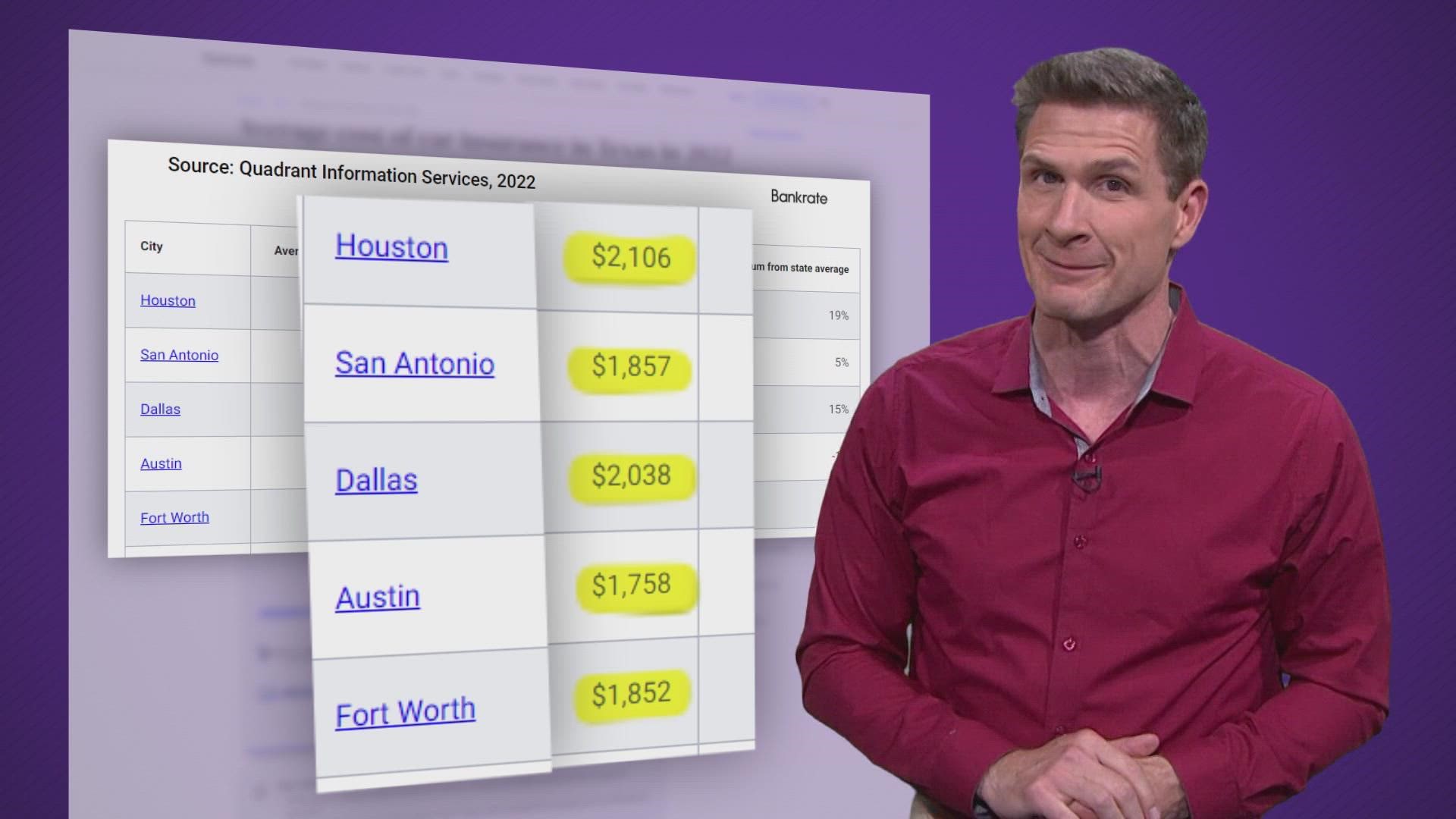DALLAS — Buckle up, Texas! An analysis is out on insurance rates, and there are some steep figures in there, depending on where you live. Rates can vary widely by ZIP code. And, of course, you also have to factor in your driving and claims history.
If you have noticed that your cost for coverage is rising, there can be many reasons for that. But this can't be helping: A report by QuoteWizard found that Texas had 91% compliance with wearing seat belts, but Texas was one of just five states where they found seat belt use went down between 2012 and 2019.
The stats on seat belts
The analysis also found that in 2019, Texas had the most people who weren't wearing seat belts when they were killed in auto accidents (892 of them that year).
This is a big deal. In addition to the tragedy of all those lives lost, you can bet auto insurance companies calculate this when setting our rates. They know the statistics. If you are using a seat belt in the front seat, the federal government says you're 50% less prone to being moderately or critically injured and 45% less likely to be fatally injured. So please wear yours.
Take it from 16-year-old Jason Wheeler (the younger version of the author of this article). He was on a road trip and was traveling one day near Spring, Texas without wearing his seat belt. But he stopped for gas, got back in the car and for whatever reason made a random decision to put it on.
About five minutes later, young Jason crashed, his car flipped and landed on its roof, and he was left upside down…hanging by that seat belt while looking at grass through a shattered windshield a foot away from his face.
Make sure your children are buckled—truly buckled
Since then, buckling in has been automatic for me. I have also always made sure my children were wearing their seat belts. When they were old enough to do it themselves, I would ask them before putting the car in gear if they were buckled.
A few times, they told me yes, but as we were traveling or when we got to our destination, the seat belt slipped right out of the receptacle. They weren’t making sure it ‘clicked’ every time. So I started having them listen for that and tug on their seat belt to make sure it was truly fastened and didn’t slip out. The new question before driving away each time was, “Are y’all buckled and pulled?”
If you have older children, who are already driving, there are a variety of ways (some more invasive than others) to make sure they are buckling up, too.
If you still aren't convinced…
If you still don’t want to wear a seat belt, you might want to consider this. The Texas Supreme Court ruled in 1974 that your use or non-use of a seat belt wasn't admissible in car crash cases.
But in 2015, the state's high court called its prior ruling "A vestige of a bygone legal system and an oddity in light of modern societal norms."
Justices overruled the court’s long-standing ruling. Holding that seat belts are now required by law in Texas, they decided, "Relevant evidence of use or nonuse of seat belts is admissible for the purpose of apportioning responsibility in civil lawsuits”.
In plain English, that meant that if the crash that hurt you was someone else's fault, the money you could get from suing them could be reduced if you weren't buckled in.
If we're all strapped in, we might save some money on our collective auto insurance premiums, make sure we are fully financially covered if someone else injures us in a crash, and most importantly…we can prevent a lot of injuries and fatalities.

